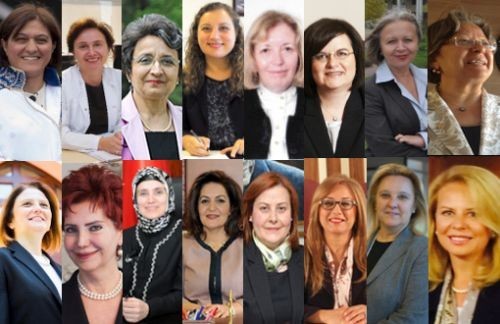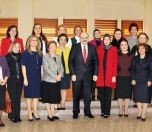Click here to read the article in Turkish / Haberin Türkçesi için buraya tıklayın
“President of Council of Higher Education (YÖK), Prof. Dr. M. A. Yekta Saraç will gather with YÖK women Board members and women university chancellors of public and foundation universities at the breakfast”.
We’ve checked who will be at the table following this announcement.
Though everyone responded positively to the invitation, the number of participant unfortunately won’t be high.
Out of all university chancellors in Turkey, only 16 of them are women whereas 163 are men.
YÖK Board is not different in terms of woman representation. In the council of 19 people including YÖK president, there are 17 men and two women.
This being the case, there will be 18 women and 17 men at YÖK’s March 8 breakfast.
University chancellors: 163 men, 16 women

Out of 179 university chancellors in Turkey, 163 of them are men and 16 are women
Here are that 16 names:
Avrasya University – Aşkın Asan
Bezm-i Alem Vakıf University - Rümeyza Kazancıoğlu
Boğaziçi University – Gülay Barbarosoğlu
Dicle University – Ayşegül Jale Saraç
Düzce University – Nigar Demircan Çakar
Ege University – Candeğer Yılmaz
Gedik University – Berrak Kurtuluş
Giresun University – Aygün Attar
Işık University – Şirin Tekinay
İstanbul Aydın University – Yadigar İzmirli
İstanbul Bilim University – Çavlan Çiftçi
İstanbul Kültür University – Sıddıka Semahat Demir
Nevşehir Hacı Bektaş Veli University – Filiz Kılıç
Okan University – Ayşe Şule Kut
Özyeğin University – Feride Gençtürk
Yeditepe University – Canan Aykut Bingöl
YÖK Board: 17 men, 2 women

Two women in the board of 19 people to attend the meeting are Beril Dedeoğlu and Zeliha Koçak.
First time in YÖK history of 35 years
We will see if the statement in YÖK’s declaration “Last step taken by YÖK with respect to social gender equality and justice at universities will be shared with public by YÖK President Saraç” will off any solution to this inequality.
Let’s hope that this breakfast that is taking place for the “first time” in YÖK’s history of 35 years contributes to revealing this inequality. (BK/TK)







.jpg)
.jpg)


